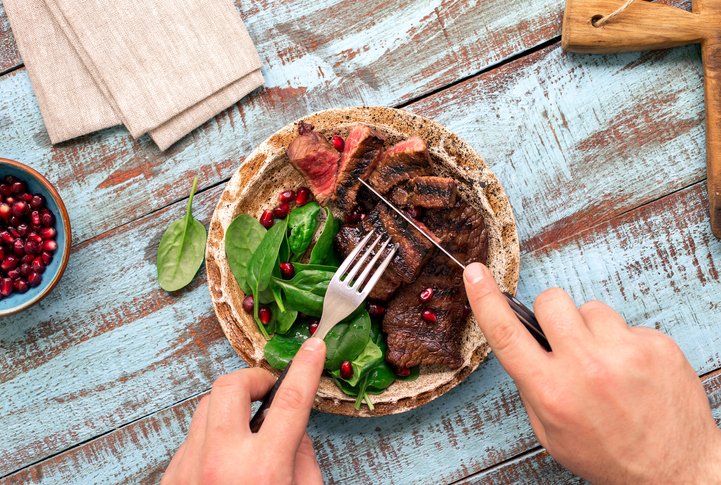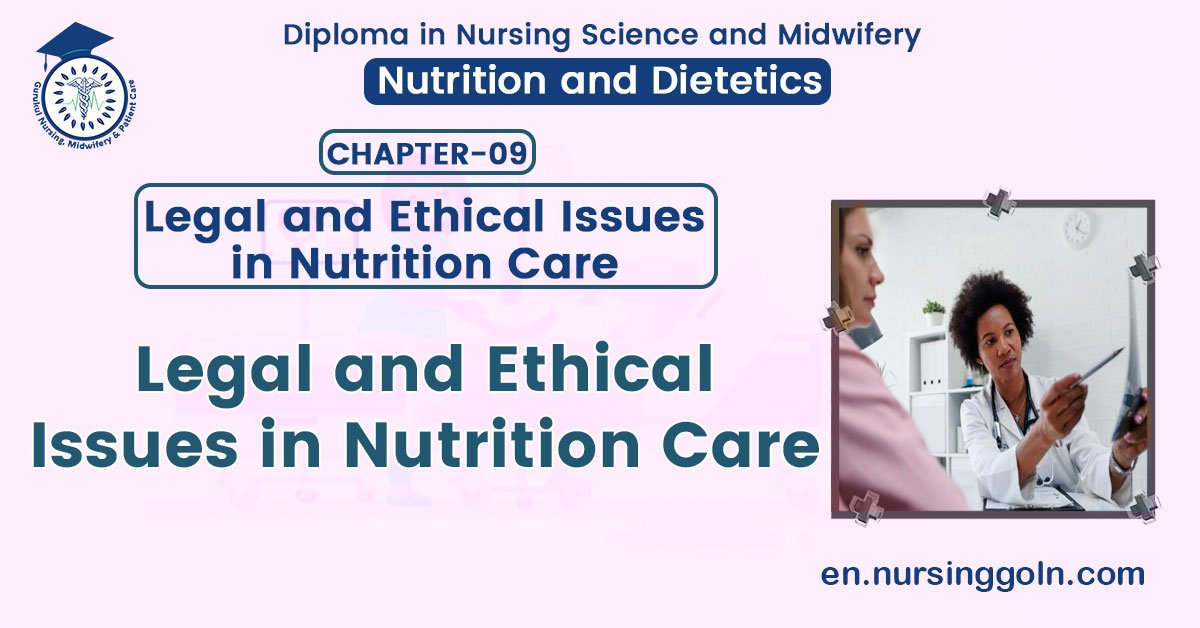Legal and Ethical Issues in Nutrition Care – This book covers the entire syllabus of “Nutrition and Dietetics” prescribed by BNMC for all Diploma in Nursing Science and Midwifery students. We tried to accommodate the latest information and topics. This book is an examination-friendly setup according to the teachers’ lectures and examination questions.
At the end of the book previous university questions are given. We hope in touch with the book students’ knowledge will be upgraded and flourish. The unique way of presentation may make your reading of the book a pleasurable experience.

Legal and Ethical Issues in Nutrition Care
Code of Ethics of Nutrition:
Nutrition and dietetics practitioners have voluntarily adopted the Code of Ethics to reflect the values and ethical principles guiding the nutrition and dietetics profession and to set forth commitments and obligations of the practitioner to the public, clients, the profession, colleagues and other professionals.
Code of Ethics for the Nutrition and Dietetics Profession:
Principles and Standards:
A. Competence and professional development in practice (Non-maleficence)
Nutrition and dietetics practitioners shall:
- Practice using an evidence-based approach within areas of competence, continuously
- develop and enhance expertise, and recognize limitations.
- Demonstrate in depth scientific knowledge of food, human nutrition and behavior.
- Assess the validity and applicability of scientific evidence without personal bias.
- Interpret, apply, participate in and/or generate research to enhance practice, innovation, and discovery.
- Make evidence-based practice decisions, taking into account the unique values and circumstances of the patient/client and community, in combination with the practitioner’s expertise and judgment.
- Recognize and exercise professional judgment within the limits of individual qualifications and collaborate with others, seek counsel, and make referrals as appropriate.
- Act in a caring and respectful manner, mindful of individual differences, cultural, and ethnic diversity.
- Practice within the limits of their scope and collaborate with the inter-professional team.

B. Integrity in personal and organizational behaviors and practices (Autonomy)
Nutrition and dietetics practitioners shall:
- Disclose any conflicts of interest, including any financial interests in products or services that are recommended. Refrain from accepting gifts or services which potentially influence or which may give the appearance of influencing professional judgment.
- Comply with all applicable laws and regulations, including obtaining/maintaining a state license or certification if engaged in practice governed by nutrition and dietetics statutes.
- Maintain and appropriately use credentials.
- Respect intellectual property rights, including citation and recognition of the ideas and work of others, regardless of the medium (e.g. written, oral, electronic).
- Provide accurate and truthful information in all communications.
- Report inappropriate behavior or treatment of a patient/client by another nutrition and dietetics practitioner or other professionals.
- Document, code and bill to most accurately reflect the character and extent of delivered services.
- Respect patient/client’s autonomy. Safeguard patient/client confidentiality according to current regulations and laws.
- Implement appropriate measures to protect personal health information using appropriate techniques (e.g., encryption).
C. Professionalism (Beneficence)
Nutrition and dietetics practitioners shall:
- Participate in and contribute to decisions that affect the well-being of patients/clients.
- Respect the values, rights, knowledge, and skills of colleagues and other professionals.
- Demonstrate respect, constructive dialogue, civility and professionalism in all communications, including social media.
- Refrain from communicating false, fraudulent, deceptive, misleading, disparaging or unfair statements or claims.
- Uphold professional boundaries and refrain from romantic relationships with any patients/clients, surrogates, supervisees, or students.
- Refrain from verbal/physical/emotional/sexual harassment.
- Provide objective evaluations of performance for employees, coworkers, and students and candidates for employment, professional association memberships, awards, or scholarships, making all reasonable efforts to avoid bias in the professional evaluation of others.
- Communicate at an appropriate level to promote health literacy.
- Contribute to the advancement and competence of others, including colleagues, students, and the public.

D. Social responsibility for local, regional, national, global nutrition and well-being (Justice)
Nutrition and dietetics practitioners shall:
- Collaborate with others to reduce health disparities and protect human rights.
- Promote fairness and objectivity with fair and equitable treatment.
- Contribute time and expertise to activities that promote respect, integrity, and competence of the profession.
- Promote the unique role of nutrition and dietetics practitioners.
- Engage in service that benefits the community and to enhance the public’s trust in the profession.
- Seek leadership opportunities in professional, community, and service organizations to enhance health and nutritional status while protecting the public.

Code of Ethics
The Code of Ethics of the National Association of Nutrition Professionals (NANP) is intended to support the NANP members individually and collectively in maintaining a high level of ethical conduct.
They are standards used to determine the propriety of conduct in relationships with clients, colleagues, members of allied professions and the public. The honored ideals of the NANP state that the responsibility of the NANP member extends not only to the individual but also to society.
- The NANP member will participate in activities that improve the nutritional well-being of the client and the community.
- NANP members will strive continually to improve skill and knowledge and make their professional attainments available to their clients and colleagues.
- An NANP member’s services or counseling will be founded on a legal and practical basis in accordance with state and federal laws. The member will not voluntarily associate or work with anyone who violates this principle.
- An NANP member will not exceed their scope of service or practice, either in abilities or by law. An NANP member will not intentionally misrepresent their education or professional credentials nor will they use the term Board Certified in Holistic Nutrition® or BCHN® without the express written permission and approval of NANP.
- An NANP member will choose whom he or she will serve. Having undertaken a client, however, they may not neglect the client unless discharged. The member may discontinue service only after giving due notice to the client.
- An NANP member will seek consultation in doubtful or difficult cases, and whenever it appears that the services of other professionals are warranted to provide more complete or better quality advice.
- An NANP member will not reveal the confidences entrusted in the course of consultations unless required to do so by law.
- The members of the National Association of Nutrition Professionals will guard the public and themselves against any nutritional counselor deficient in moral character or professional competence. They will obey all laws, uphold the dignity and honor of the profession and accept its self-imposed disciplines. They will oppose without hesitation the illegal or unethical conduct of fellow members.
- In pursuit of this code and these goals, an NANP member will vigorously defend our first amendment right of freedom of speech and press to impart truthful information concerning diet and nutrition and will defend the health freedom right of the public to obtain such data from the sources that they may choose.
